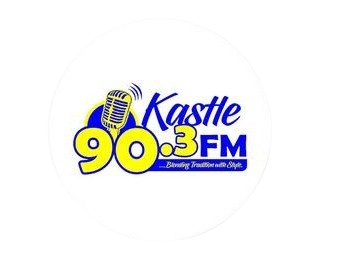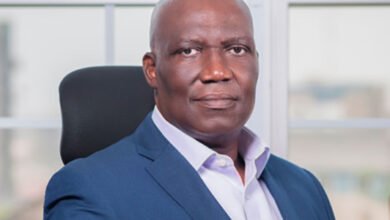Business News
Is having a bank account necessary?

Welcome to another week of financial learning. I believe we are all well and staying safe under these “abnormal” COVID-19 times!
The Report by Thomas-Moore Adingo in the B&FT on Monday, October 26, 2020, captioned, “Over 60% of CAPBuSS applicants have no bank accounts inspired today’s article.
The revelations in the report saddened me. According to the Report, an outrageous 60% percent of the 800,000 applicants for the GHS 600 million Coronavirus Alleviation Programme (CAP) for small businesses affected by the Pandemic did not have bank accounts.
The above finding was made public by the National Board for Small Scale Industries (NBSSI), the body tasked with disbursing the fund.
According to the Executive Director of NBSSI, Kosi Yankey-Ayeh, most applicants, particularly females, have resorted to using their husbands and family members’ bank account and Mobile Money wallets.
This revelation, according to the Executive Director, is a common problem throughout the country.
This report brings forth the begging discussion of Savings and Financial Literacy.
I cannot wrap my mind around a business running without a bank account. How is it even possible for an enterprise to operate sales on a Mobile money wallet??
I will crave my readers’ indulgence to do a throwback on my earlier article on why we all need bank accounts.
Financial Literacy aims to make individuals and businesses financially independent and disciplined. The core of financial independence has a savings culture.
Having a savings culture helps in preparing for a future need. Among the many importance of saving is the provision of startup capital for the dream business.
Having a savings culture can also help in meeting unexpected expenditures in life.
Proper savings starts with a bank account. In the absence of a bank account, savings discussion avails little.
I will, therefore, focus on why and how one should open a bank account in Ghana.
Choosing the right financial institution is key to savings comfort.
The banking sector cleans up, which happened between August 2018 and Dec 2019, has toughened the standing financial institutions’ nerves.
Therefore, people should have little fear when dealing with the remaining Universal banks, savings and loan institutions or the existing Microfinance, Rural Banks, Credit Unions, and Finance Houses.
Many depositors who had their funds locked up in the collapsed institutions have received a part, if not all, their funds.
The government has assured full payment of the outstanding funds.
I will humbly ask that we exercise patience whiles we receive full payment.
In the meantime, it is essential that we still read about all financial institutions before you start a savings or business account with them.
The four main factors to consider when choosing a financial institution are the security of your money, convenience, customer service, and pricing or fees.
A simple check from the Central Bank website will give you an idea of that institution’s status.
Check out for the business registration certificate and permit in the banking hall before going ahead with this account opening process.
I picked up a few benefits of opening a bank account from Westchester County Training Centre that I will like to reshare today.
According to the publication by Westchester County, opening a bank account offers the following benefits;
Bank account offers convenience
For example, if you have a checking account, you can quickly pay by cheque or through online bill pay.
If you get an Automated Teller Machine (ATM) or debit card for the account, you can withdraw money easily or make payments at stores.
A debit (ATM) card is usually accepted for purchases anywhere.
Bank accounts are safe
One of the most significant advantages of placing your money in a bank is safety. Keeping money in your house can easily be stolen or lost forever due to a disaster such as a fire.
Your deposit is insured against theft and fires.!
Deposits are federally insured, so if your bank or financial institution closes, you will get your money back.
Earn while you save
Many financial institutions offer different forms of deposit accounts that will reward you for storing your money.
Banks may pay you interest on your deposits.
Depending on the type of account, interest rates will vary. Simple savings accounts pay very little interest, while accounts like money market funds such as treasury bills and fixed deposits typically pay higher rates.
The interest on the savings account will help your money grow over time.
Be sure to shop around and check what fees are involved – you do not want to wind up paying more in costs than you are gaining in interest.
Suppose you have a checking and savings account with the same institution. In that case, you can have your money transferred periodically from checking to savings, putting the money aside to help grow your savings.
Bank accounts can help you access credit
Banks and credit unions can help you access credit to acquire a home, a car, student, or personal loan because banks tend to favor existing customers, particularly those who manage their money well.
The referenced report in the BFT by Thomas supports this benefit.
Private investors will also need to know your banking history before considering your financial proposal. As stated in the report, the coming of the African Continental Free Trade Area offers small and medium enterprises a favorable environment; thus, having an active account is critical!
You will never know when that opportunity will come by, so prepare now. I will advise that businesses should only Mobile Money wallet for transactional purposes.
It should, however, not replace the above benefits of having a bank account.
The two main things you should consider when approaching any financial institution are Pricing and Customer Service.
Loyalty to one financial institution is becoming outdated as its customer service standards and pricing are poor.
I want to touch on the basic requirements for an opening a personal savings account with the above well said.
National identification
The first requirement for opening a savings account in Ghana is a national ID.
National Passport, Voters ID, Driver’s License, New National ID Card, and National Health Insurance Card are the standard identification cards accepted by financial institutions to open bank accounts.
One will, therefore, need to have a copy of the above to kick start the process.
Banks will need evidence of a work permit in the passport if you are a foreigner.
Passport picture
Banks also need a copy of your passport picture in addition to your Identification.
In the past, banks required physical copies of the passport pictures.
However, with technology, you can even have your picture taken with a digital camera or phone by officials in the banking premises.
TIN number
Having a Tax Identification Number is a crucial requirement for account opening in Ghana now. The TIN can be procured from the nearest Ghana Revenue Authority office in your district.
It takes less than a week to have your TIN. Banks need that as a regulatory condition before opening an account for you; hence, get it now!
GOOGLE MAP/GPS/DIRECTIONAL MAP
As part of the Know Your Customer (KYC) requirement, banks will need you to draw a directional map to your residence or provide your GPS address.
This is proof of residence. This is standard practice for all banks in Ghana now.
Completed account opening pack
The last but not least requirement is to complete the account opening pack yourself.
The standard account opening pack will require your name, address, nationality, identification details, and contact details, source of income, signature, and next of kin.
Initial deposit
An amount required for the opening of an account is the initial deposit.
This amount varies from one bank to the other.
This should not be a deterrent!
Some banks open zero accounts, so you may want to start with them.
However, I will advise you to open an account with an initial deposit to keep up your level of commitment to the process.
Ensure you have all the above details before you approach the financial institution.
Concisely, we need to appreciate the benefits of having your bank account.
It remains the first step towards financial discipline.
According to Embassy Loans of Florida, hoarding money at home, whether in a safe or the proverbial mattress, may not be the best way to hold on to your money.
I wish everyone an enjoyable and memorable week!
Source: thefinancefocus.com




